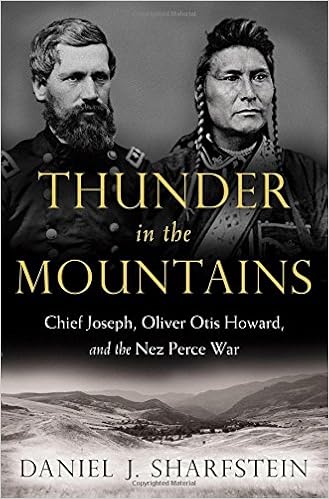Did you feel like something was missing this weekend? Didn't have the same pep in your step on Sunday morning? My apologies! This weekend's book reviews have been terribly delayed. But it's not too late, I hope. Check out the titles below.
The New York Times has a review by Mary Beth Norton of Catherine Kerrison’s Jefferson’s Daughters: Three Sisters, White and Black, in a Young America, which combines a detailed history of Thomas Jefferson’s two white daughters, who accompanied him to Paris in the 1780s, and in several of the book’s “most innovative chapters, resconstructs the life of Harriet, Jefferson’s only enslaved daughter.
The Times also features Jeanne Theoharis’s A More Beautiful and Terrible History: The Uses and Misuses of Civil Rights History (which “presents a historical narrative that is largely unknown outside scholarly books,” and features “pointed indictments of Northern self-congratulation”) in a review of books about the Black Lives Matter Movement.
There is also an article in the Times about Michelle Alexander’s The New Jim Crow, which is banned in prisons in North Carolina and Florida.
In the Washington Post, James G. Hershberg reviews The Road Not Taken: Edward Lansdale and the American Tragedy in Vietnam, in which Max Boot “tracks the fascinating but ultimately depressing trajectory” of Edward Lansdale--who inspired the Graham Greene’s “The Quiet American” (1955) and Eugene Burdick’s “The Ugly American” (1958)--and his attempts at assisting the South Vietnamese in the years before the Vietnam War. While the author has an admiring tone, he “judiciously refrains from contending that Lansdale’s route would have yielded a materially different outcome.”
In the NYRB, Antony Beevor reviews four books on the siege of Leningrad, The War Within: Diaries from the Siege of Leningrad
The LA review of Books takes on Mark Perry’s The Pentagon’s Wars:The Military’s Undeclared War Against America's Presidents, which examine American conflicts “from the end of the Cold War up to the election of Donald Trump,” documenting the back and forth between the nation’s civilian leaders and what he calls an “often recalcitrant and quietly dissenting military establishment.” In the same publication, Attorney Alyson Clair Decker reviews You Don’t Own Me: How Mattel v. MGA Entertainment Exposed Barbie’s Dark Side by Orly Lobel, which she calls “a disjointed and repetitive diatribe against Barbie” that “reads like a trashy pulp fiction novel.” According to Decker, Lobel focuses on Mattel’s efforts to control Barbie’s image and doesn’t give the company a fair shake.
The Christian Science Monitor reviews Patrick J. Charles’ Armed in America: A History of Gun Rights from Colonial Militias to Concealed Carry. According to the review, Charles reveals “weaknesses in the argument that our Founding Fathers wanted citizens to have totally free access to guns,” but is also “uncompromisingly thorough to the point of being somniferous.”
 The New Books Network features interviews with Elizabeth Stordeur Pryor (Colored Travelers: Mobility and the Fight for Citizenship before the Civil War); Richard E. Schroeder (The Foundation of the CIA: Harry Truman, The Missouri Gang and the Origins of the Cold War); Emily C. Nacol (An Age of Risk: Politics and Economy in Early Modern Britain); Sir David Cannadine (Victorious Century: The United Kingdom, 1800-1906); Daniel J. Sharfstein (Thunder in the Mountains: Chief Joseph, Oliver Otis Howard, and the Nez Perce War), and Robert Hunt Ferguson (Remaking the Rural South: Interracialism, Christian Socialism, and Cooperative Farming in Jim Crow Mississippi), as well as several new books in Holocaust Studies. In the Arguing History podcast, Lynn Dumenil and Christopher Capozzola consider the relationship between America’s involvement in World War I and the granting of women the right to vote.
The New Books Network features interviews with Elizabeth Stordeur Pryor (Colored Travelers: Mobility and the Fight for Citizenship before the Civil War); Richard E. Schroeder (The Foundation of the CIA: Harry Truman, The Missouri Gang and the Origins of the Cold War); Emily C. Nacol (An Age of Risk: Politics and Economy in Early Modern Britain); Sir David Cannadine (Victorious Century: The United Kingdom, 1800-1906); Daniel J. Sharfstein (Thunder in the Mountains: Chief Joseph, Oliver Otis Howard, and the Nez Perce War), and Robert Hunt Ferguson (Remaking the Rural South: Interracialism, Christian Socialism, and Cooperative Farming in Jim Crow Mississippi), as well as several new books in Holocaust Studies. In the Arguing History podcast, Lynn Dumenil and Christopher Capozzola consider the relationship between America’s involvement in World War I and the granting of women the right to vote.